Greece continued to battle deadly wildfires on Tuesday, 48 hours after a giant wall of flame spread to just six miles from Athens city centre.
The fires had eased by the morning, but fears over strong winds reigniting pockets meant that the authorities were on high alert as helicopters swooped over the city dropping water on several areas.
Meteorologists predicted that gusts would reach up to 60-70km/h (around 40mph), and a fire warning remains in place until Thursday, with temperatures forecast to reach 40C (104F).
As the smoke-filled skies cleared above Athens, firefighting aircraft arrived from France and Italy as part of a European civil protection mechanism, a government official said. The Czech Republic sent 75 firefighters and 25 engines to assist ground teams.
One woman died in Vrilissia, a municipality with a population of 32,000. Locals said she was in her sixties and became trapped in a building, too afraid to jump from the window. Her body was found inside by firefighters. Other businesses in the area were destroyed, with residents reporting explosions throughout the night.
Many in the region expressed shock at how close the fire had come to central Athens, claiming they had been caught unawares.
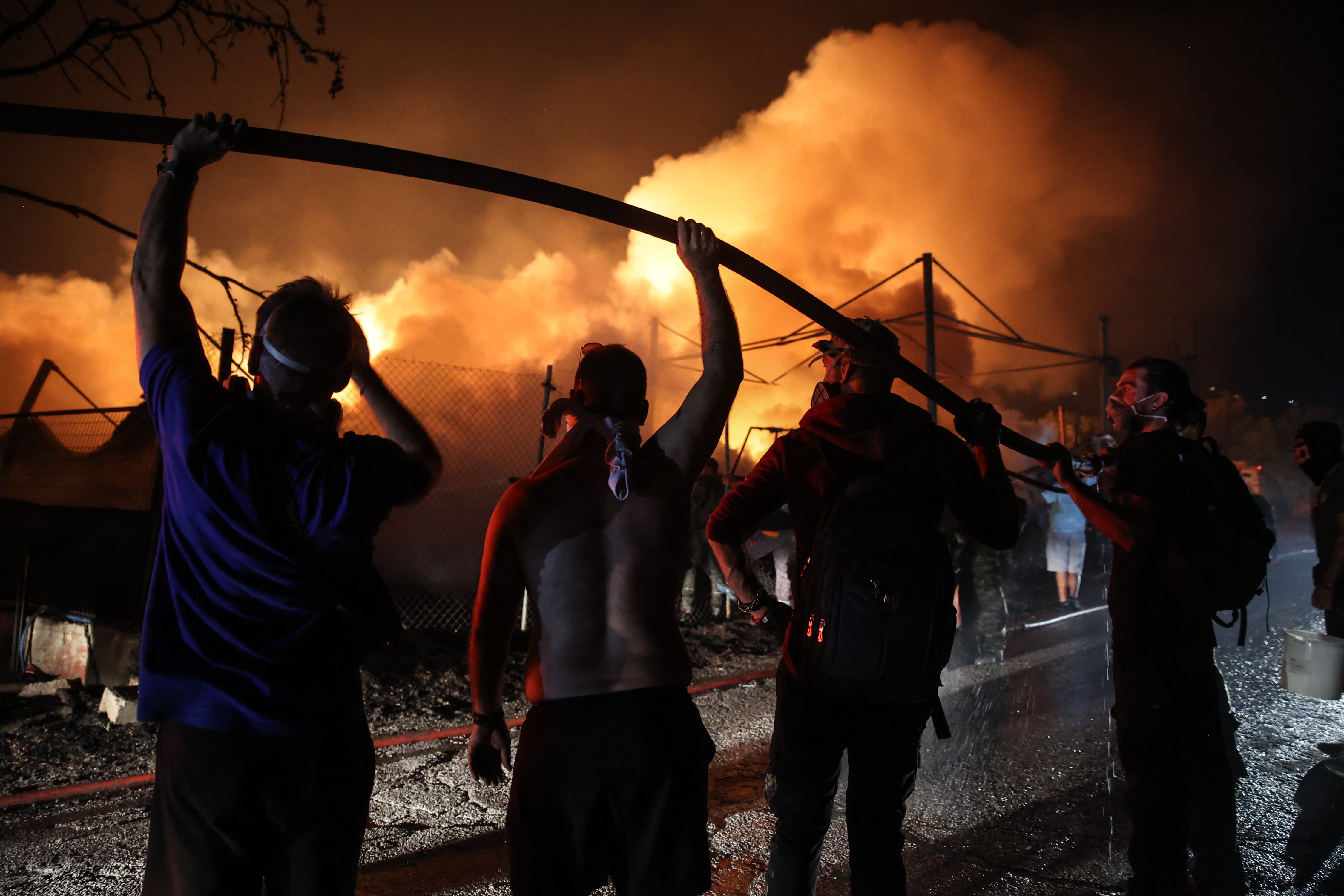
Stavros Sdrolias, a student who lives in nearby Chalandri, was one of many volunteers who rushed to help put out fires on Monday.
The 21-year-old said the smoke was “unbelievable”, adding that, at the height of the fires, you couldn’t leave the house as it was impossible to breathe.
“At 8pm I went to a centre that was housing people who had been evacuated, to help. We then planned to give the firefighters food, but when we arrived at the flames we realised we needed to help. We were running around with buckets of water for two hours.”
Other volunteers at the scene came from Athens city centre, including a man who had lost his house in the deadly fires of 2018, which killed 104 people.
Stavros added: “The fire was focused on Anapafseos [St]– it’s a long road that doesn’t even have one fire hydrant. It’s ridiculous. Firefighters were having to drive 10 minutes back and forth to get water.”
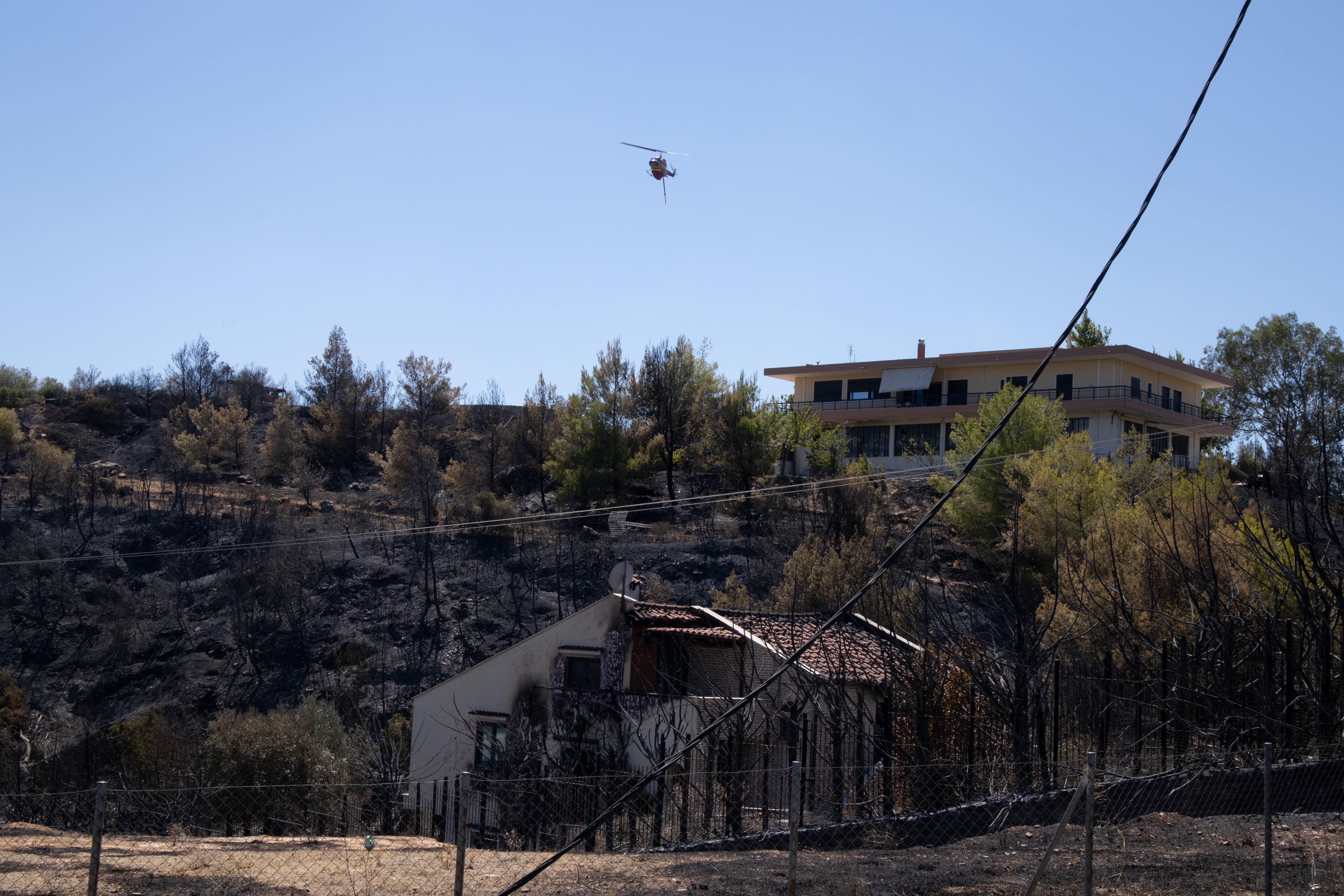
The blaze began on Sunday afternoon near Lake Marathon, about 22 miles (35km) northeast of Athens, crossed Mount Pendeli, and descended onto the northern and northeastern suburbs of Athens.
Firefighters remained between the ancient town of Marathon and Lake Marathon on Tuesday afternoon. Residents returned to burnt-out houses along the mountainous stretch, surrounded by ash and dead trees. Blackened ground could be seen in all directions. Ash and pine cones littered the road, a factor that firefighters say helped spread the blaze in the first place.
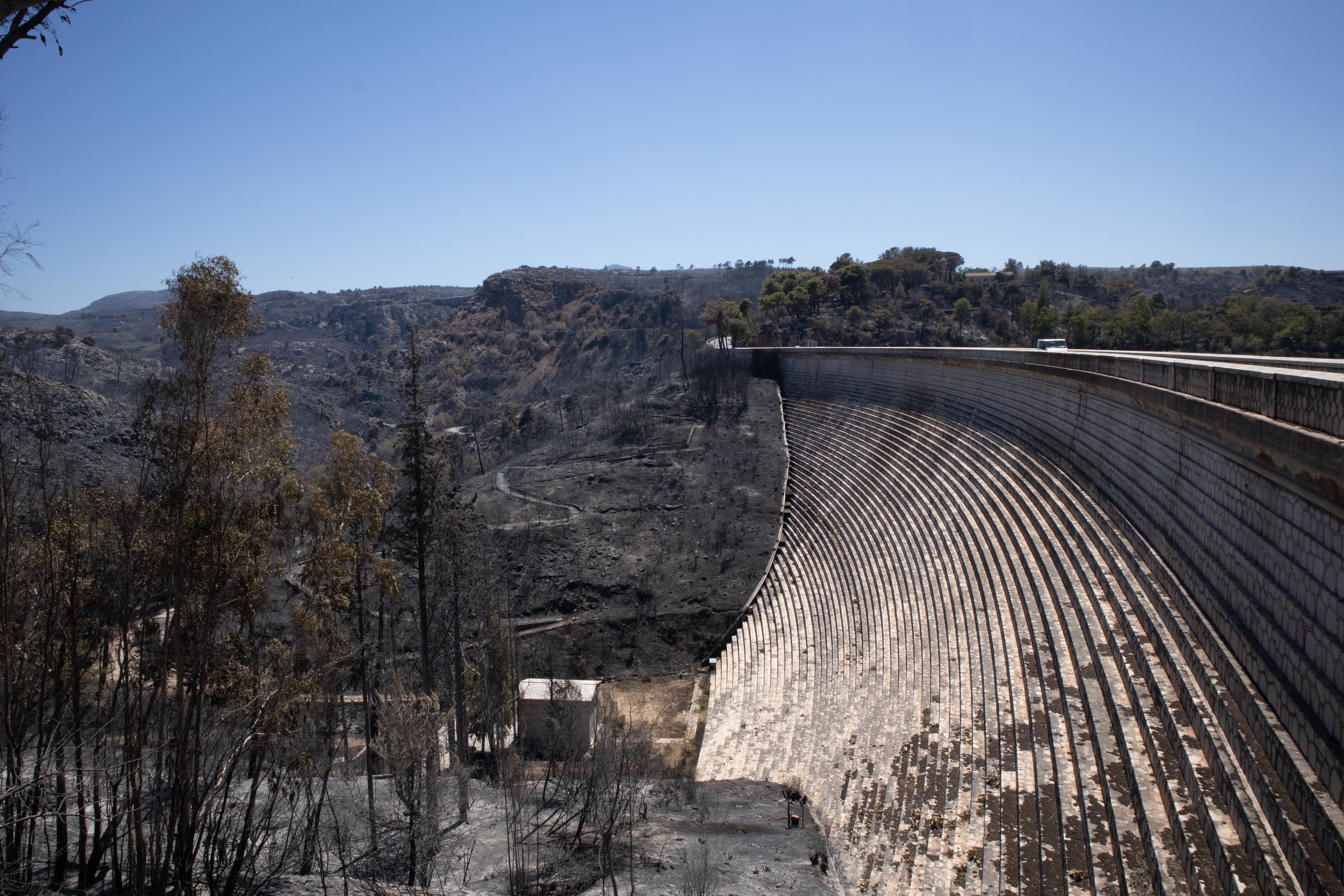
Helicopters could be seen filling up with water from Lake Marathon throughout the day, as locals watched on from the dam surrounded by charred remains of buildings and trees.
Another fire broke out on Tuesday morning at the popular seaside town of Nea Makri in East Attica. An evacuation order was issued for a region of the town, and firefighters were battling to stop the spread of a blaze just metres away from holiday apartments in the mountains overlooking the sea.
“The situation has improved, but there are random blazes. At the time being we don’t have any new fronts, only some rekindlings, but we remain on high alert,” a fire brigade official said on Tuesday.
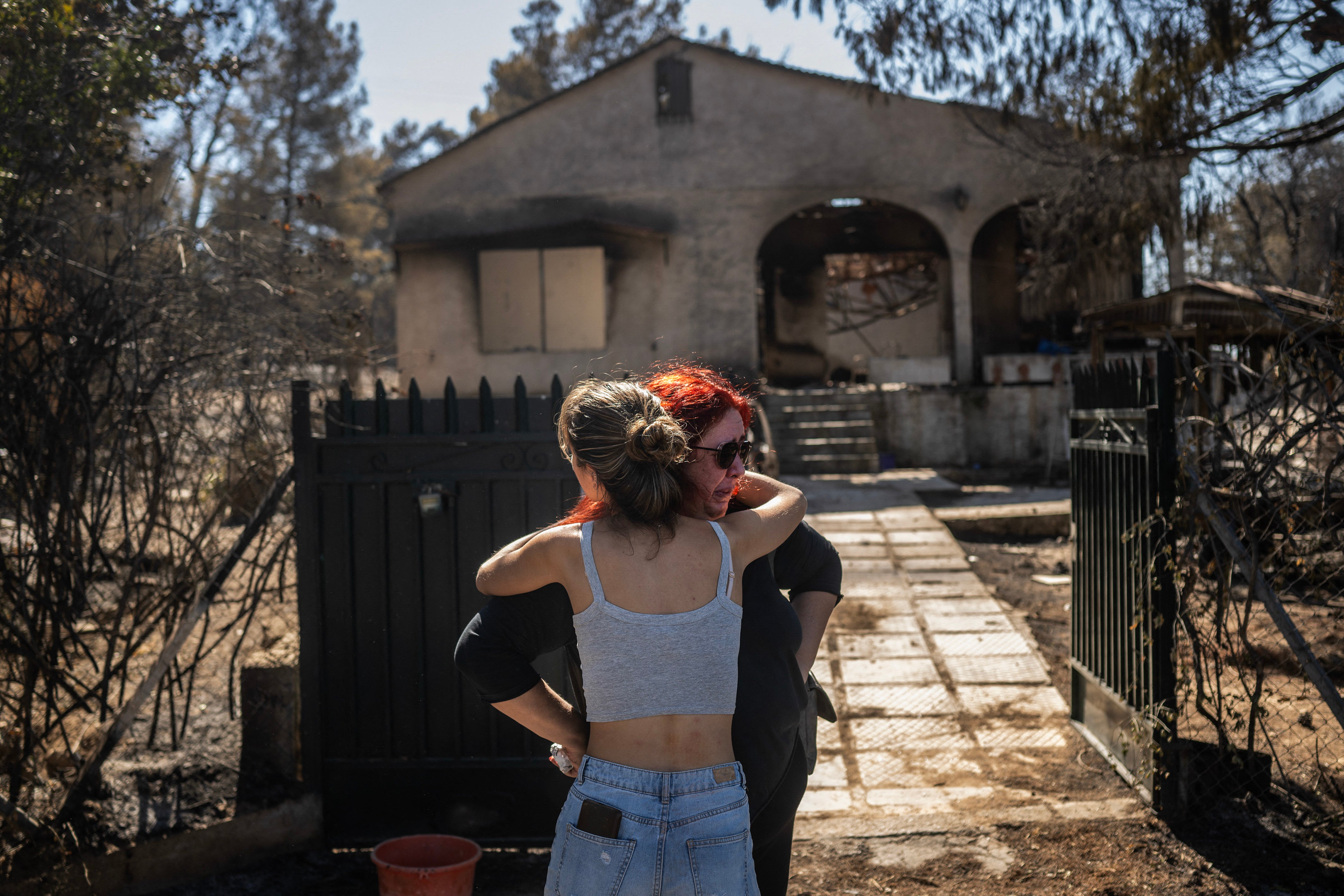
The government has announced compensation and relief measures for victims of a fire that the National Observatory said damaged around 10,000 hectares of land. Prime minister Kyriakos Mitsotakis was expected to chair a ministerial meeting about the fire on Tuesday evening. Measures announced by the climate crisis and civil protection ministry include rent subsidies, a three-year property tax exemption, and financial aid.
Opposition parties accused the government of not doing enough to prevent the disaster.
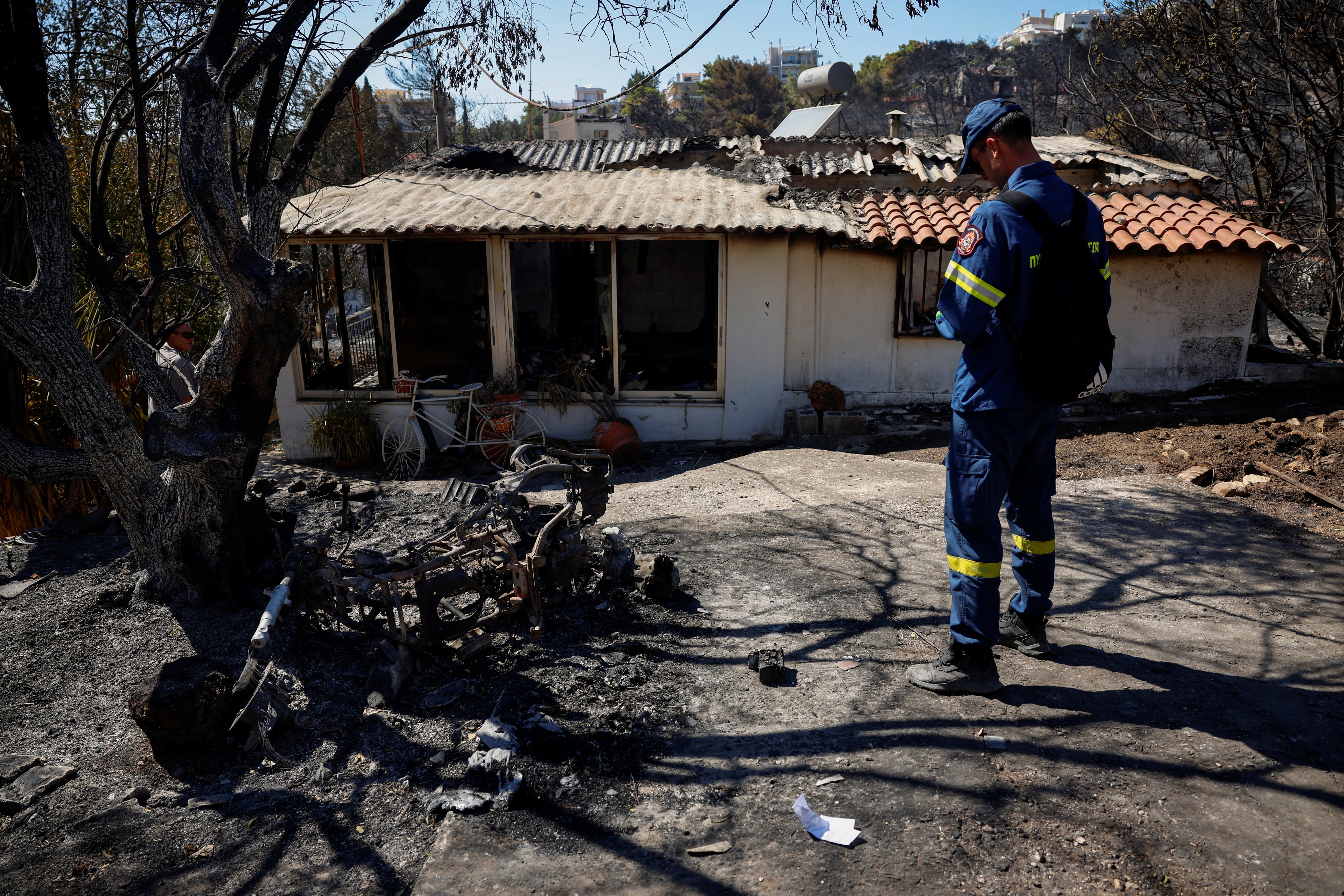
In central Athens, many tourists were blissfully unaware of the battle that had occurred just miles away the previous night. Some were offered masks at their hotels in case the smog returned.
The US embassy in Athens has put out a warning urging travellers to “exercise extreme caution in affected areas”, saying: “The General Secretariat for Civil Protection has announced Very High Fire Risk (Risk Category 4) and Extreme Fire Risk (Risk Category 5) for many areas in Greece, including areas close to Athens.”
The cause of the wildfire has not yet been determined, but will serve as a stark reminder of the dangers the city could face due to reduced rainfall and increased temperatures brought about by the climate crisis.

